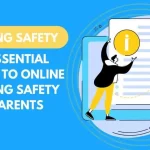1. AI Toys Are Coming – But Do Kids Really Need Them?
News: Mattel, the company behind Barbie, is working with OpenAI to add ChatGPT-style conversations to toys. Children may soon be talking to dolls that respond in real-time with AI.
Why this matters:
These toys may sound fun or educational, but they raise concerns about privacy, emotional attachment, and how play is being shaped. Do children need a chatbot to guide their imagination?
What parents can do:
- Avoid AI-powered toys unless you fully understand how they work
- Check if the toy connects to the internet or stores conversations
- Keep smart toys in shared spaces like the living room, not in bedrooms
- Teach your child that AI is a tool, not a friend
- Watch out for toys that try to promote products or influence your child’s preferences
Let’s give children space to create their own stories during playtime without technology leading the way.
2. Teens Regret Their Smartphones – But It’s Complicated
News: A recent article shared stories from young adults who said smartphones had a negative impact on their mental health, friendships, and sleep. One teen said, “I don’t think my brain should have gone through that.” Another who only got her first smartphone at 20 said she now struggles to control how often she uses it.
Why this matters:
We are seeing both sides of the debate – some young people wish they never had smartphones, while others struggle because they never learned to manage them earlier. This tells us that simply banning phones is not enough. Children need support to build digital skills.
What parents can do:
- Wait until at least age 16 before giving a full smartphone
- Delay social media until 16, as most platforms are not designed for children
- Teach your child how algorithms work and how they shape what we see
- Keep phones out of the bedroom to protect sleep and privacy
- Encourage offline hobbies like baking, drawing, gardening or journaling
- Talk about influencers and help your child understand when they are being sold to
- Watch YouTube or scroll social media together sometimes to stay aware of what they are seeing
3. Deepfake Harassment Is Now a Real Risk in Schools
News: Some teenagers in Ohio used apps like Undress and ClothOff to create fake nude images of classmates using AI. These images were then shared online. The apps are free and easy to use, with no hacking required.
Why this matters:
This is a serious form of harassment. It affects children’s safety, self-esteem, and mental health. Most of these apps are not well-known, and parents may not even be aware they exist.
What parents can do:
- Talk to your child about digital consent and image-based abuse
- Check their privacy settings on Instagram, Snapchat, and other platforms
- Remind them never to share personal photos that could be copied or changed
- If your child is targeted, report it to the school, platform, and police
Final Thoughts: Give Children Tools, Not Just Rules
We can’t slow down technology, but we can help our children grow up with strong values, critical thinking, and digital awareness. It’s not just about saying no. It’s about teaching them how to use tech safely and wisely.



